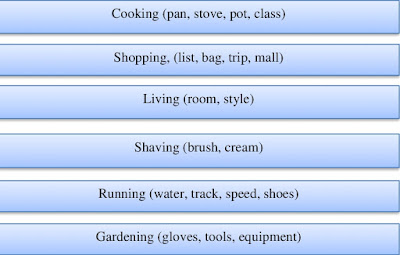Lesson Plan of Vocabulary Building in English Language
Lesson Plan of Vocabulary Building in
English Language
Grade V
Students` Learning Outcomes
- Recognize meaning of common adjectives and verbs in relation to each other.
Information
for Teachers
- Adjectives tell the qualities of nouns, for example, big, short, small, black, and white, etc.
- Action Verbs show actions e.g. sleep, walk, talk, jump, run, etc.
- Present participles are a present form of the verb. They are usually made by adding “-ing” to the infinitive.
- Adding “-ing” to the infinitive follows the normal spellings rules.
- Some present participles act as adjectives and are called verbal adjectives and are called verbal adjectives, as; swimming camp, cooking show, gaming zone, etc.
Material/Resources
Writing
board, chalk/marker, duster, textbook
Introduction
- Write the following words on the writing board and ask the students to sort out adjectives, as; big, wash, small, box, large, cook, etc.
- Ask them to use the above mentioned words in sentences to clarify meaning.
- After doing this activity, ask the students to come up with some more adjectives.
- Write the following sentences on the writing board and let them guess the correct answer, as;
- 1. The
directions are very ________. I can`t understand a things (Confused, confusing).
- 2. She
was very ________________ in her grade in the class. (disappointed,
disappointing)
- 3. The
teacher`s attitude was very _______. (encouraged, encouraging)
- Ask the students to sort out verbal adjectives from the words given in the bracket.
Development
Activity
1
- Write the following verbs on the writing board, as; drive, cycle, try, swim, win, dry, fly, live, and cry.
- Ask them to work in pairs and make verbal adjectives of these verbs, as; wash – washing. Etc.
- Ask them randomly to tell the answers.
- Explain meaning of difficult words if it is required.
Activity
2
- Let the students write the following sentences in their notebooks and underline the verbal adjective.
- Monitor and help the students.
- Once the students have done it, ask them randomly to tell the verbal adjectives.
- Ask them to make corrections side by side.
- Guide them wherever they require.
Sum
up/ Conclusion
- Ask the students, “How can verbs be changed to adjectives?”
- Ask them to come up with some verbs and make verbal adjectives of them.
- Students can change and check each other`s work for verbal adjectives and correct sentences.
- Tell them to correct their work in the light of the feedback given by their peers.
- Find the exercise related to the topic in the textbook.
Assessment
- Write the following words on the writing board and ask the students to write sentence by using these words as verbal adjectives, as; she is attending cooking class.
- Monitor and help the students wherein it is required during session in class.
- Students must do this exercise in their notebooks or on the textbooks.
Follow
up
- Ask the students to find at least five sentences with verbal adjectives from their books and write in their notebooks.






Comments
Post a Comment